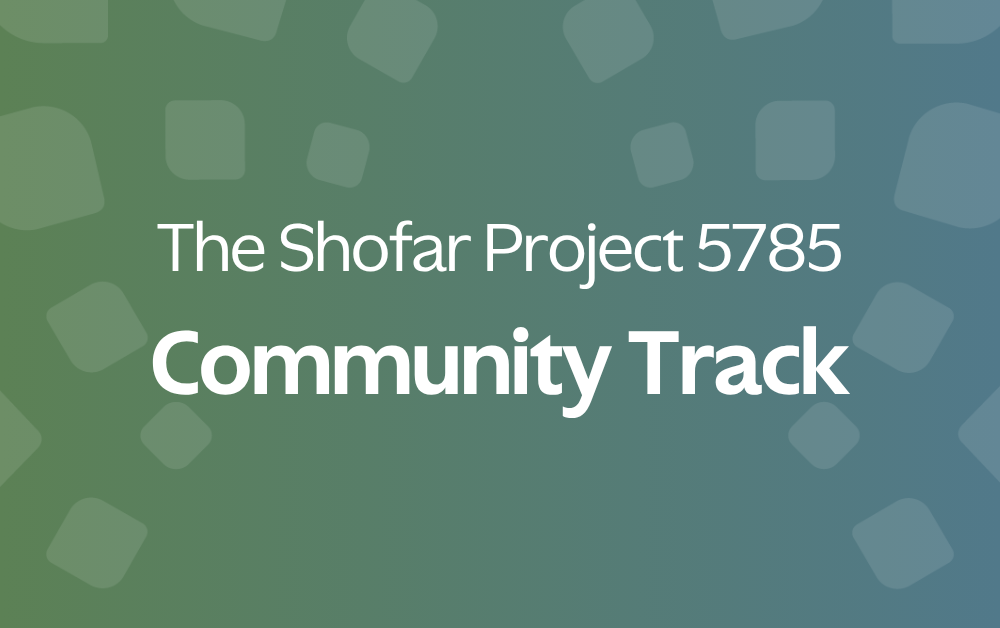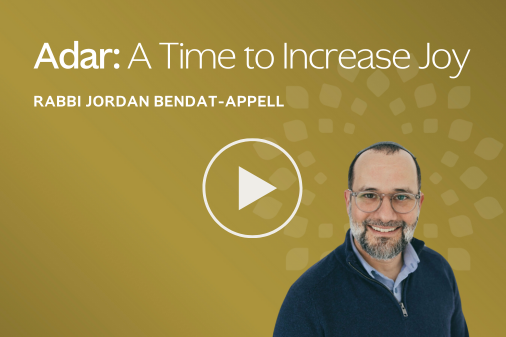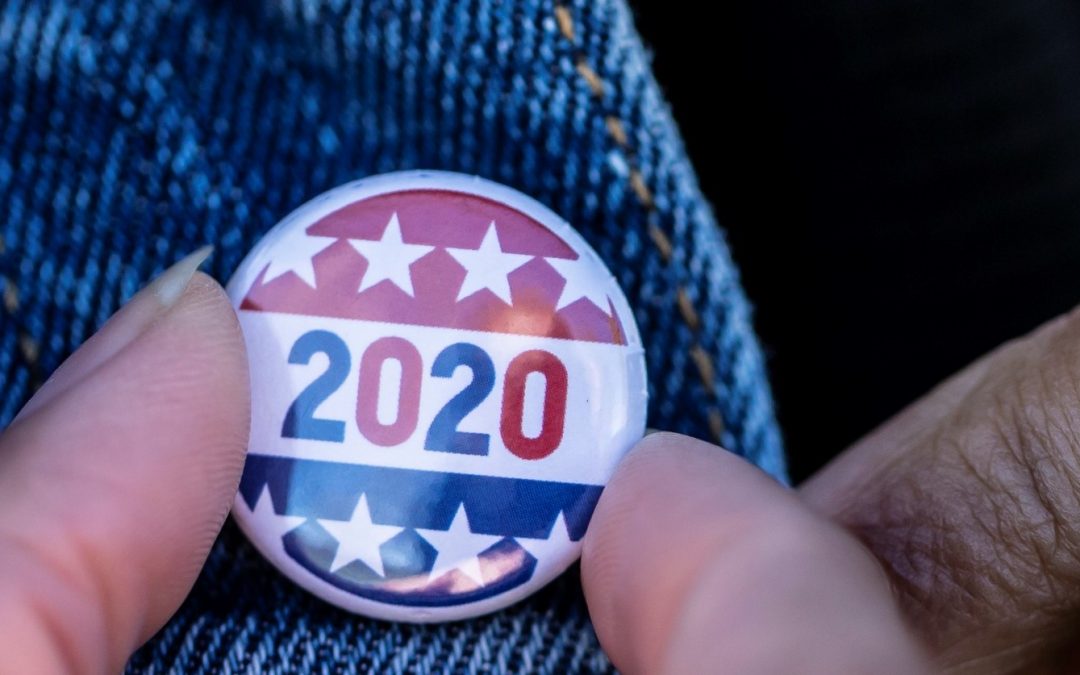
Re’eh: Shifting Our Awareness During Elul
Below is an excerpt from Rabbi Jordan Bendat-Appell’s teaching for the first week of Elul, as part of The Shofar Project 5785. Our guide this year is Rabbi Alan Lew’s now-classic book, This is Real, and You are Completely Unprepared.
Our Elul practice doesn’t begin with a focus on our behaviors as one might suspect. Rather, it begins by shining a light on our perception. Rabbi Lew introduces Elul with the Torah portion of Re’eh, which he translates as “Look!” He writes (p.65):
Pay attention to your life. Every moment in it is profoundly mixed. Every moment contains a blessing and a curse. Everything depends on our seeing¹ our lives with clear eyes, seeing the potential blessing in each moment as well as the potential curse, choosing the former, forswearing the latter.
Our capacity to choose wisely depends on our capacity to perceive clearly. This isn’t a seeing that depends on vision, but one that comes from attentiveness of heart and mind. Elul begins our practice with this commitment to seeing ourselves as clearly as we can and to engage in cheshbon-ha-nefesh, a soul accounting.
In addition to prayer, meditation, and mindful focus, you may want to try one more practice for cultivating clearer perception: look up. Put differently, we can shift our attention from the details and minutiae of our lives to instead take in a broader landscape or perspective. Many of us spend many hours every day with our bodies hunched over devices, attending to the endless details of our daily lives or scrolling through our feeds and messages. This curved-in posture mimics that of a person who is sad and despondent. This physical posture can induce us to feel low and constricted in spirit. Conversely, looking up, both literally and figuratively, improves our posture and may also lift the spirits and broaden our lived sense of our moment. As R. Jonathan Sacks writes:
This is one of the enduring themes of Tanach: the importance of looking up. “Lift up your eyes on high, and see who has created these things,” says Isaiah (Is. 40:26). “I lift up my eyes to the hills. From there will my help come” said King David in Psalm 121.
When we shift our attention so as to take in a larger perspective, we open to the world around us, bringing in a quality of spaciousness into our awareness. This spaciousness exists whether or not we pay attention to it. When we do pay attention to it, and then reflect on our lives within the context of that spaciousness, our view of ourselves changes as it integrates this broader view. To perceive ourselves and the world around us more clearly, we must also look beyond our narrow concerns. Take time to actively shift your attention, to roll back your shoulders, lift your chain heavenward, and breathe deeply.
¹ It is important to note that “seeing”, as used here, is metaphorical and does not rely on the literal ability to see.





